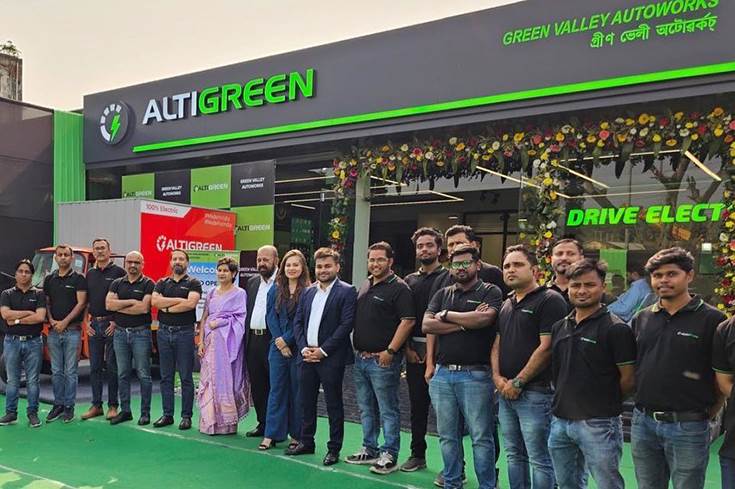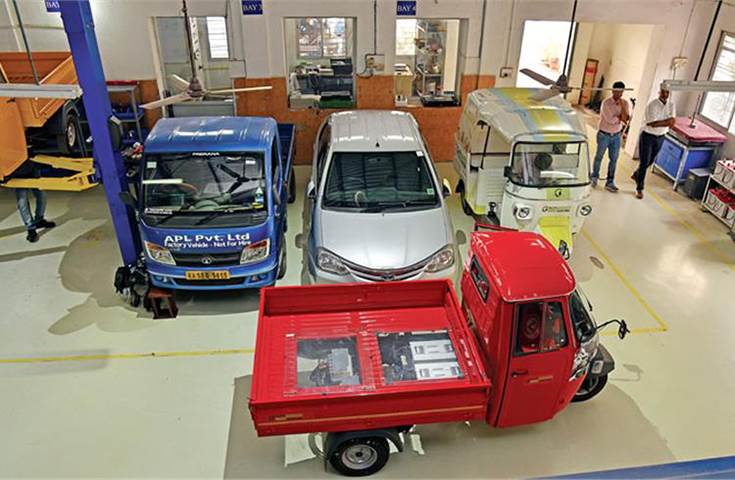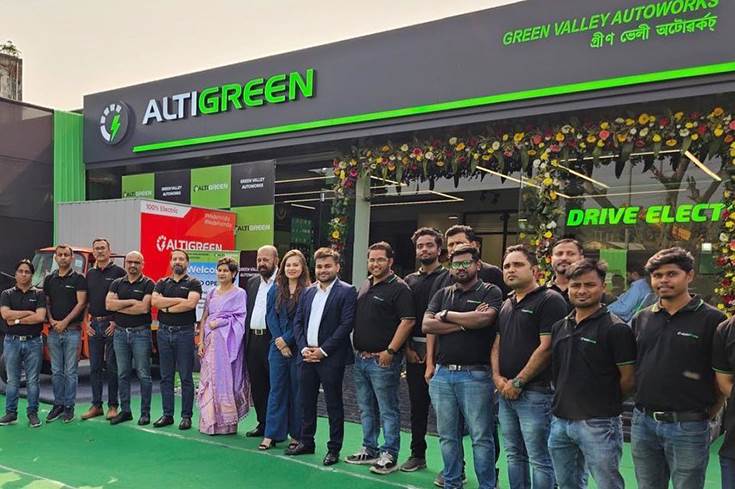Dealership business model best suited to cater to last-mile delivery EV market: Altigreen
Bengaluru-based small commercial electric vehicle manufacturer Altigreen Propulsion Labs, which is on a rapid expansion spree across India, is betting big on the traditional showroom retail model to drive growth in its business.
Within a span of 12 months, Altigreen has already opened 17 retail outlets in key cities such as Bengaluru, Hyderabad, Mumbai, Chennai and Delhi. Having recently opened its second showroom in the national capital through an experienced dealer partner, the company’s management believes that the traditional dealer model is best suited to cater to the bulk of last-mile delivery EV market, which lies untapped in the unorganised market.
“The organised-B2B segment where most start-ups are currently operating with their tie-ups with e-commerce players comprises only about 12-13% of the total small commercial-EV market, whereas almost 85% of the market is unorganised. Our forte is to get into the unorganised B2B and B2C last-mile delivery segment through the traditional dealership model,” Amitabh Saran, CEO, Altigreen told Autocar Professional.
 On March 1, Altigreen inaugurated a new dealership in Guwahati, Assam.
On March 1, Altigreen inaugurated a new dealership in Guwahati, Assam.
Altigreen estimates the small cargo-carrying commercial EV segment to offer a market potential of about 1.3 million units annually. Empowered with its Rs 300 crore fundraise in March 2022, it is implementing an aggressive network expansion programme to tap into the opportunity in the three-wheeler EV space.
While it currently offers low- and high-deck versions of its small cargo-carrying electric three-wheeler, it is soon going to introduce a passenger-carrying version on the same platform, to replace conventionally-powered last-mile mobility vehicles usually seen deployed in rural and semi-urban clusters.
“We are asking our primary dealers in the metros to pick one satellite town and set up an outlet there. As our passenger-carrying vehicle comes closer to getting introduced in the market, we feel that its penetration in Tier 2 towns will be much higher, and therefore, we are strengthening our network,” said Saran.
Altigreen aims to set up 30 showrooms across India by end-March 2023, with the North East on its radar next.
New facility, 4W small commercial EV
Of the recently raised Rs 300 crore funding, Altigreen has invested Rs 80 crore in a new, 300,000-square feet manufacturing plant in Karnataka. The new facility which was commissioned in November 2022 has an annual capacity of 55,000 vehicles over two shifts. While it has three assembly lines, Altigreen has presently only commissioned two of them, with every line contributing about 1,500 vehicles every month.
“Right now, we are running both lines at less than 50% capacity just so that we can train the manpower and make them ready for ramp up. We are gradually scaling up our volumes. We produced 500 units in February 2023, and are set to produce 1,000 units in March,” confirmed Saran.

The company which relies heavily on localisation in terms of the technology and supply chain, with over 93% local content in its products which have been engineered over the course of the last decade, is optimistic about battery prices dropping sharply by almost 40% over the next five years.” The trajectory of lithium-ion cell technology is projected to follow a downward curve of almost 40 percent. We are very gung-ho about it,” he said.
Furthermore, Saran explained that ownership models are going to change and a small commercial EV driver’s fascination for owning a vehicle is going to go away. “People are going to replace vehicles after five years as the vehicle is making the driver earn Rs 7,000-8,000 extra every month, which is unheard of in a conventionally-powered SCV. This is primarily because of the extremely-low running costs of 92 paise per kilometre,” Saran pointed out.
At present, Altigreen employs around 100 engineers in its R&D team and a four-wheeler commercial vehicle is in the pipeline for a CY2024 introduction.
While its mechanical and vehicle R&D is conducted from Bengaluru, embedded systems and controller engineering are based out of Pune, while power electronics in Mysore. According to Saran, “It is a distributed team simply because these three locations were the right places where we could find the best talent for these specific fields. And we have found people with years of experience in well-established OEMs.”
It is now aiming for the next phase of expansion and is in the process of raising Rs 980 crore in its next round of funding. “We are in the middle of raising approximately Rs 1,000 crore and the work on that has just started,” concludes Saran.
